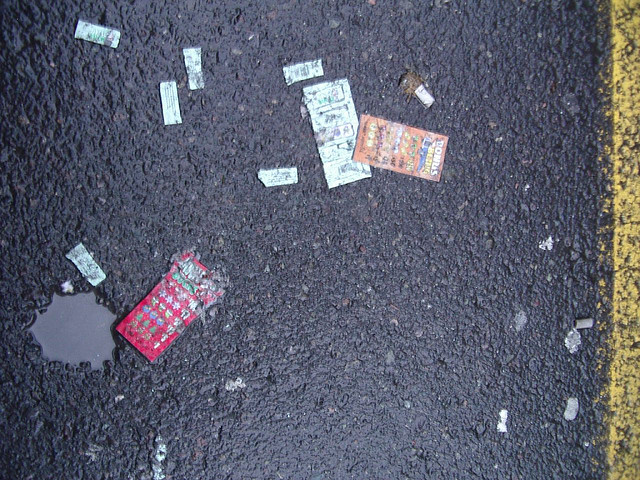The lottery is an unanswered prayer against poverty

Luck is false hope.
That’s why I hate the lottery. The lottery preys upon those most in need of hope, those who can least afford the $2 ticket. It dangles millions of dollars like a carrot on the end of an unreachable stick of hope.
Hope is good. When I write and when I live an experience regardless of how tough or how full of despair the story or situation, I always look for the hope. But false hope is exhausting. Too much of it can make you cold and callous.
“People spent more money playing the lottery last year than on books, video games, and tickets for movies and sporting events combined,” writes Derek Thomspon in Lotteries: America’s $70 Billion Shame for the Atlantic Monthly. Those are all things that can actually make you happy, bring you closer to loved ones, and have fun.
Thompson continues:
But it’s the poor who are really losing. The poorest third of households buy half of all lotto tickets, according to a Duke University study in the 1980s, in part because lotteries are advertised most aggressively in poorer neighborhoods. A North Carolina report from NC Policy Watch found that the people living in the poorest counties buy the most tickets. “Out of the 20 counties with poverty rates higher than 20 percent, 18 had lottery sales topping the statewide average of $200 per adult,” the North Carolina Justice Center reported.
The researchers made another damning discovery: Local lottery ticket sales rise with poverty, but movie ticket sales do not. In other words, lotto games are not merely another form of cheap entertainment. They are also a prayer against poverty. This fits what the researchers call the “desperation hypothesis”: States are making their most hopeless citizens addicted to gambling to pay for government services.
I don’t think you are stupid if you buy a lottery ticket. I can see how it can be fun to spend $2 and imagine what you’d do with the money. If you buy a ticket for the record jackpot today, I hope that’s why you are buying it. I hope you aren’t buying it out of a place of desperation because you can’t see hope anywhere else.
I hope you win the $700 million and, after the government takes back 45% (they win even when they are losing), you do amazing things with the money and don’t join the 70% of winners who go broke.
Regardless of why you buy a ticket, you are contributing to a program that is a state-sponsored, false hope machine that runs on the below-living wages of America’s poor.
Good luck?

Very well said. This is a sad statement of government economic policies.
In the UK the national lottery is nicknamed ‘The Unhappiness Tax’ by some. People are miserable. They are paying money to obtain a tiny bit of hope. False hope, but still a form of hope nonetheless.
It’s just another evolution of our Meritocracy… Tricks our rulers use to make us put up with more shit without complaining.
‘Arbeid Macht Frei’….’ It Could Be You’…. There’s little difference.
“The Unhappiness Tax,” I think that is a perfect description. Thanks for sharing.